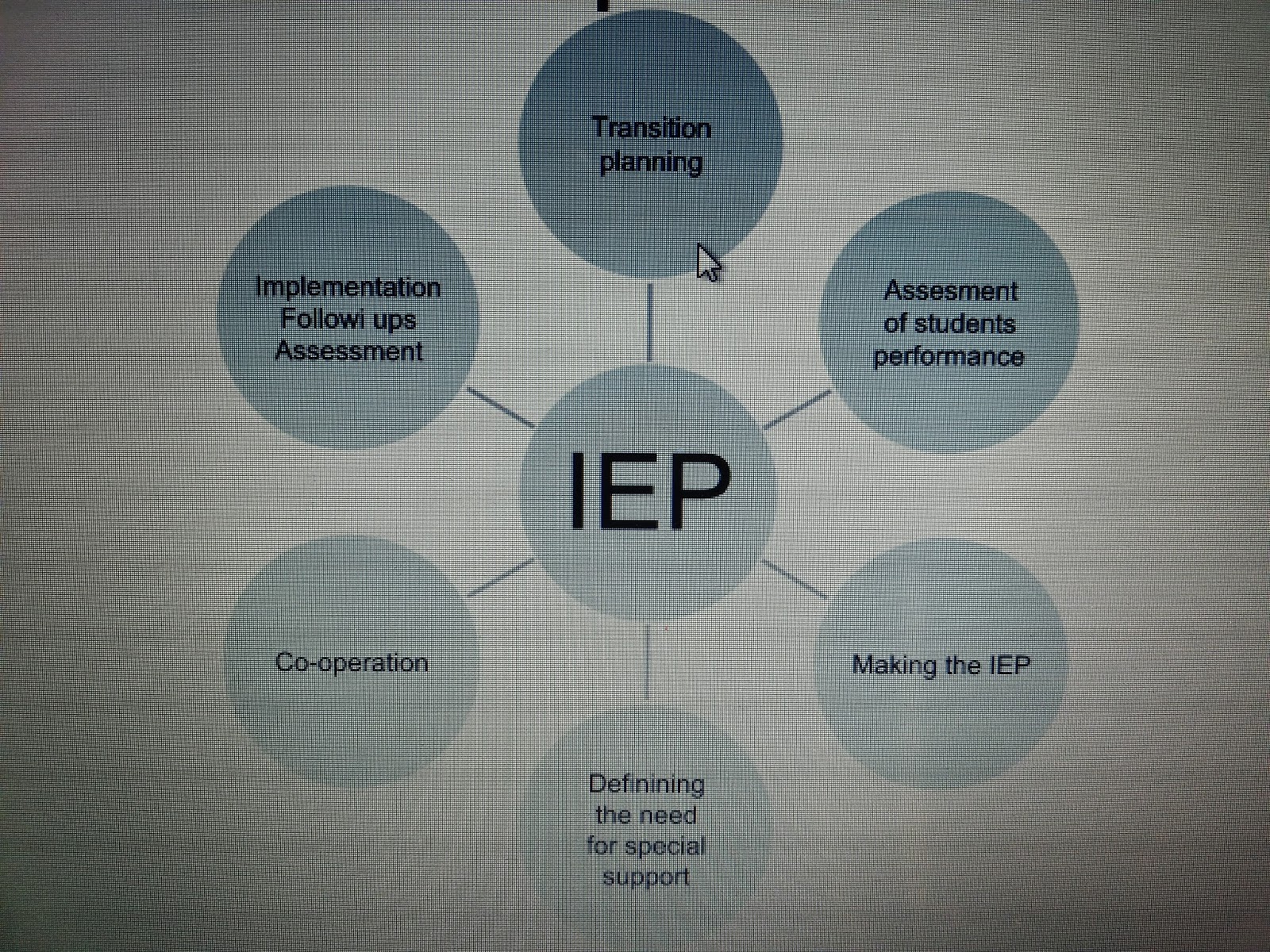As Simo mentioned in his presentaion Special needs education is the practice of educating students with special needs in a way that adresses their individual differences and needs. he considered different definitions about What is a special or special needs education? and briefly explained a history of the special needs education.
Teachers' role and responsibilities in this case diagnosing students' education and support needs, prescribing the programs to meet these needs, developing instuctional objectives and goals, preparing lesson plans for an entire class, modifying strategies and curriculum content to meet the instructional objectives established for individual students.
After theoretical part we was divided into groups and we worked in the groups. We had an activity like a station, at the every station we had certain task to do. By doing these tasks we tryed to understand deeply this topic. Because all those tasks we performed as students who has some disabilities. We got a bit experience and different emotions.
Thanks a lot Simo and Irmeli.















